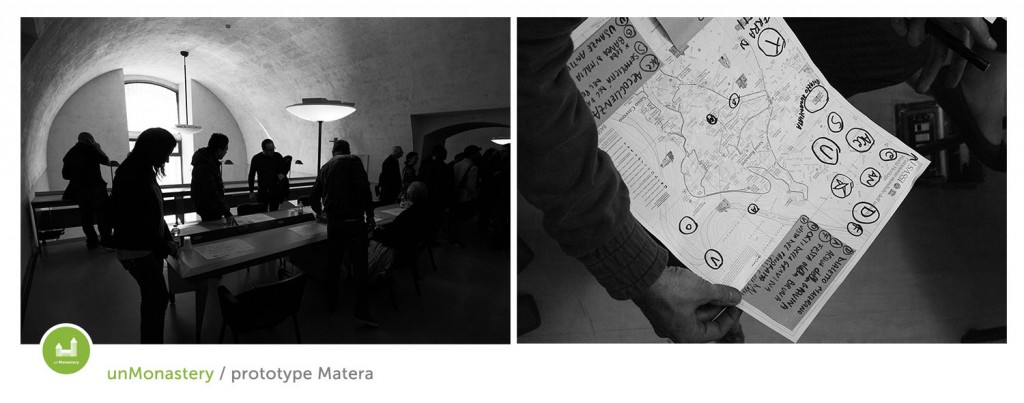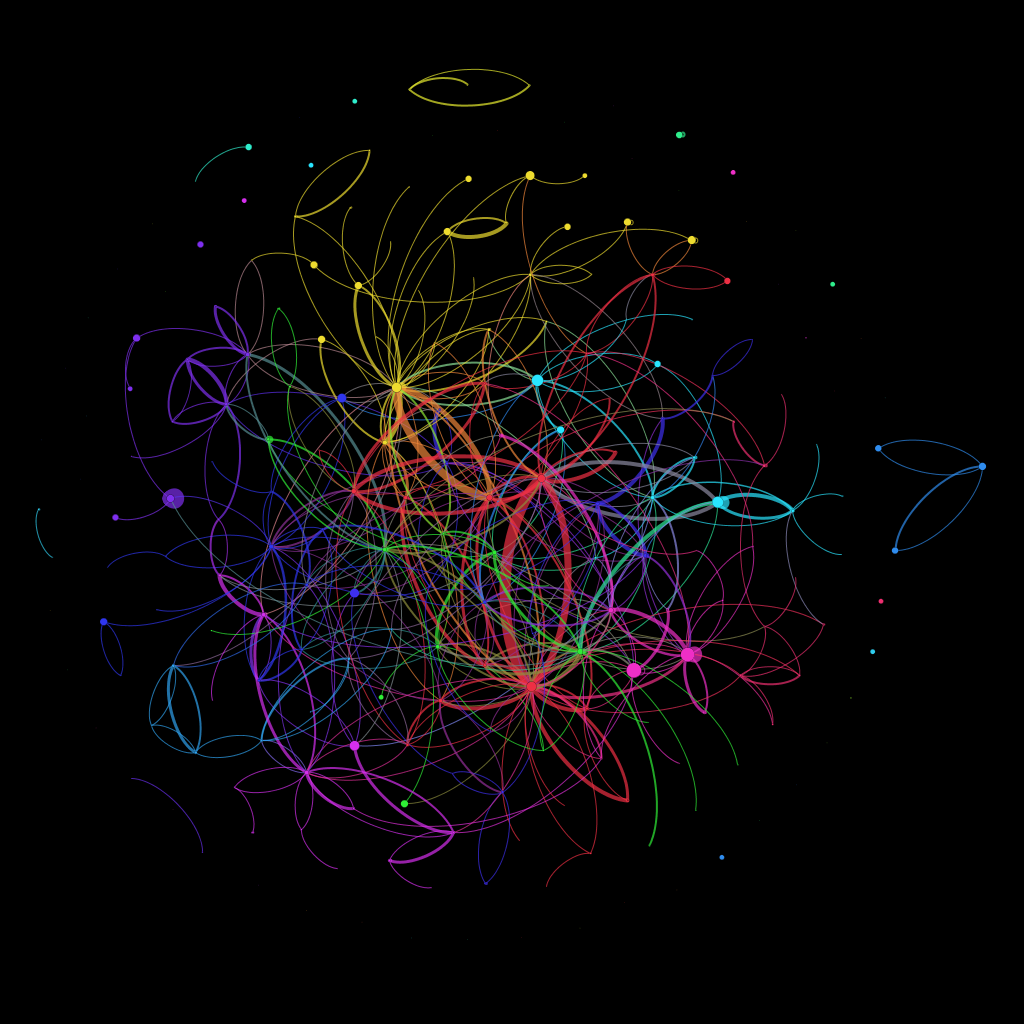
The Ise-jingū Shinto temple, in Japan, has functioned without interruptions for thirteen centuries. Yet, when the temple’s monks applied for World Heritage status to UNESCO, the United Nations’ cultural agency, UNESCO refused to grant it. Reason: Ise-jingū is made of timber, a non-durable material. Every twenty years or so, monks dismantle and rebuild it, using timber from the same forest as the original temple. From their point of view, the temple is, in fact, 1,300 years old – built with renewable materials. UNESCO’s guidelines, however, had a different perspective: what makes a World Heritage site is the durability of artifacts, not of processes.
Clay Shirky related this story in 2008, and used it to illustrate a powerful insight. Let me quote him in full:
Wikipedia is a Shinto shrine; it exists not as an edifice but as an act of love. Like the Ise Shrine, Wikipedia exists because enough people love it and, more important, love one another in its context. This does not mean that people constructing it always agree, but loving someone doesn’t preclude arguing with them.
Shirky is right. Wikipedia, as all online communities, is a social process. If their participants lose their motivation to stay involved, these communities disintegrate almost instantly.
I have been mulling over this argument in the context of the smart cities debate. Here’s what I figured out: it applies not only to online communities, but also to offline ones like cities. A city is not its streets, its buildings, its physical infrastructure. A city is all this, plus the local knowledge needed to maintain, adapt, evolve, improve its infrastructure. Of these two elements, local knowledge is the most fundamental. If it is preserved, a city destroyed by an earthquake or a great fire can be rebuilt, and preserve its identity; but if local knowledge were to disappear, time and lack of care will bring down the buildings, disrupt logistics and communication, disperse the population. A city – any city – is mostly software. This software’s modules live in the brain of its citizens, so ultimately we – its inhabitants – are the city. UNESCO reached a similar conclusion, and ended up accepting to list Ise-jingū as a World Heritage site.
Inspired by these considerations, for the last few months I have been attempting to collaborate with a city, Matera, that I have a special relationship to and is running to be European City of Culture in 2019. An application for ECOC involves a formal procedure: I imagine it would be possible to enact it as a bureaucratic process, ticking boxes as you go along. Matera, however, has a more interesting approach: using the application as an excuse to think about the city’s medium- and long-term strategy, regardless of whether it gets to be ECOC. In the terms of my metaphor, the application is a way to upgrade Matera’s software.
The city enlisted a pool of respected professional experts, but no expert, however brilliant, can ever outperform the combined effort of 600,000 citizens in the region (and of the many people that, like me, are not originally from there but care about Matera and its territory). The more the citizen’s wealth of information, skill and passion is mobilized, the more creative, smart, sustainable the future steps of the city will be. Among many initiatives to profile its bid, the city is taking three steps in this direction. They are small, low-cost initiatives, but I think they might make a difference.
The first one is an open online community tasked with enriching the work to prepare the application itself. In its early stages, it is now scouting the terrain; it encourages the local people who have interesting experiences or insights that could help craft the application to share them (example, Italian). The idea is to turn a spotlight onto the many interesting, creative things that always and everywhere, people are doing without their democratic institutions knowing about them. In a second phase, the professional experts will produce proposals (for example, about the application’s concept) and discuss them with citizens online, trying to improve them. The community website’s social contract (Italian) is one of constructive collaboration: we have a job to do, and we all commit to a discussion of the highest level we can achieve. For rants, narcissism or cheap cynicism go play with Facebook. The website has not been publicly presented, but it is already up and being used – which is nice in itself, it’s best to do things first, cut ribbons later, if there is time.
The second move is an open data policy. The release of public sector data in open format is a hot topic across Italy, and can count on a small but committed civil sector of the civil society that promotes it with a passion. Releasing high-quality data means investing in the citizenry’s collective intelligence, that needs sound information to produce equally sound contributions to public decisions. In January, a small group of civic hackers gave Matera a gift: they spent a day doing reconnaissance on the state of the city’s data infrastructure. It led to drafting a roadmap towards the release of a first batch of datasets already in 2013. Along this path, city and civil society walk together.
The third move is the most radical: deploy in Matera the first unMonastery. Driven by a mostly Northern European founding group and led by 27-year-old Londoner Ben Vickers, unMonastery draws inspiration from 10th century’s monastic life to encourage radical forms of collaboration and innovation: a sort of lay, off-grid mendicant order striving for a society that can better withstand present and future systemic crises. The social phenomena behind this project are the rise of hacker culture and the deepening of the crisis in Europe. Taken together, these two trends mean more and more young, educated, connected and generous young people. Of these, many aspire to a deep societal fix, and do not think they can bring it about by joining the public service, nor by working for the private sector. They don’t buy into the “gonna change the world” Silicon Valley rhetoric; for them, innovating means tackling the fundamental problems of expanding individual freedom, establishing a fair social deal, crafting an environmentally sustainable society – not inventing gadgets. Their walks of life seem unsettling, even dangerous to most of us (Ben paid his education by obtaining and selling magic items in an online game, then working for one of the first data mining companies); they are technologically savvy, idealistic and almost always poor. UnMonastery offers them a deal similar of that of the monasteries of old: lodging, board and time to think and realize their ideas, relatively free from the need to make money. Matera adds to the mix something unMonasterians find irresistible: an interface to a local community that wants to evolve and has some meaty problems to deal with.
The gamble behind this collaborations is that, living side by side, hackers and Materans discover and explore new paths to make the city more beautiful, livable, sustainable and low cost. Can we invent (partly) decentralized solutions to urban hygiene and urban waste collection problems? What can we learn from the ancient tecnhology of rainwater captation and reuse, in use in Matera as late as the 1800s? How do we solve the problem, of moving people and stuff in the Sassi, where there are far more stairways than roads, without choking the city in private cars?
Corporates, so far have not solved these problems (in some cases they actually contributed to create them – exhibit A being the automotive industry). They can’t afford to: companies have a duty to make a profit, and this means innovating only in ways that lead to generating revenue in short and predictable times. Citizens and their unMonasterian guests are not constrained in the same way. They can afford to explore any solution, even wildly visionary ones, and simply discard them if turns out they don’t work. Net result: many more attempts, many more failures, but by the law of large numbers, more successes as well. Should somebody stumble upon a solution that can morph into a new company, well, why not? Sviluppo Basilicata‘s business incubator is literally across the courtyard from the future unMonastery – they’ll be happy to help.
It’s too soon to draw any conclusion, but Matera seems to have the attitude of a smart city , in my favorite sense of the term: it tries to decentralize knowledge and decisions, creates space for new projects and promotes everyone’s creativity. This was clear in the unMonastery launch event, a beautiful meeting between the city and the foreign hackers (Ben wrote about “Matera’s gift to the unMonastery”). Even the criticism to the project points to a healthy, constructive relationships.
The road is long, and all of these moves could very well fail: but we are off to a good start. A prosperous voyage to Matera and “her” unMonasterians!
If you would like to become an unMonasterian, read this.
